Quota reform protesters vow continued demonstrations until demands are met
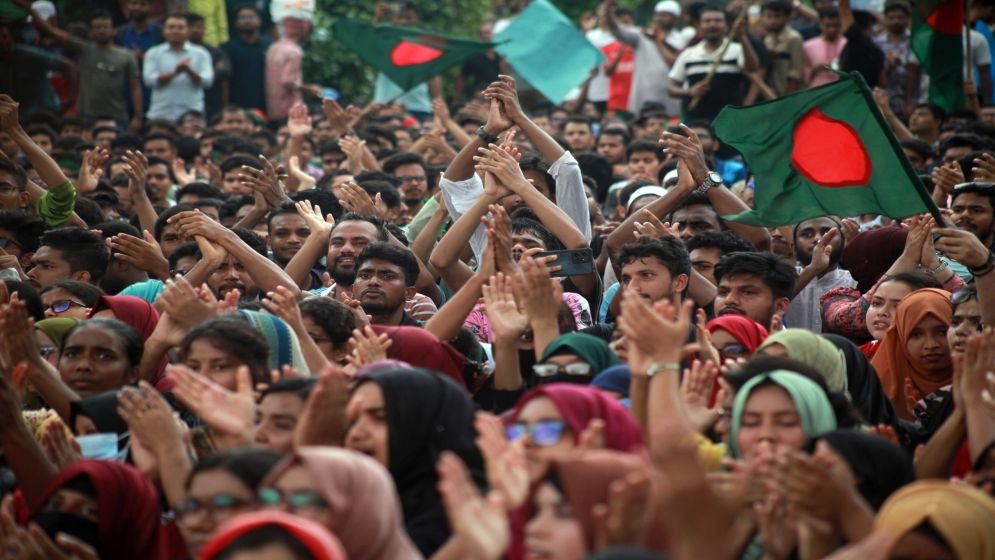
Photo Credit: Nazmul Islam
For the second consecutive day, thousands of students and job seekers blocked the Shahbagh intersection in Dhaka for one and a half hours, demanding the reinstatement of the 2018 notification that abolished the quota system for public sector jobs.
The demonstration began with a march from Dhaka University Central Library around 2:30 PM, passing through several key landmarks including the university's Freedom and Democracy Arch, VC Square, Raju Sculpture, Doel Chattar, the High Court, and the Fisheries Building before culminating at Shahbagh around 3:45 PM.
The demonstrators departed around 5:15 pm and headed towards Dhaka University, concluding their protests for the day.
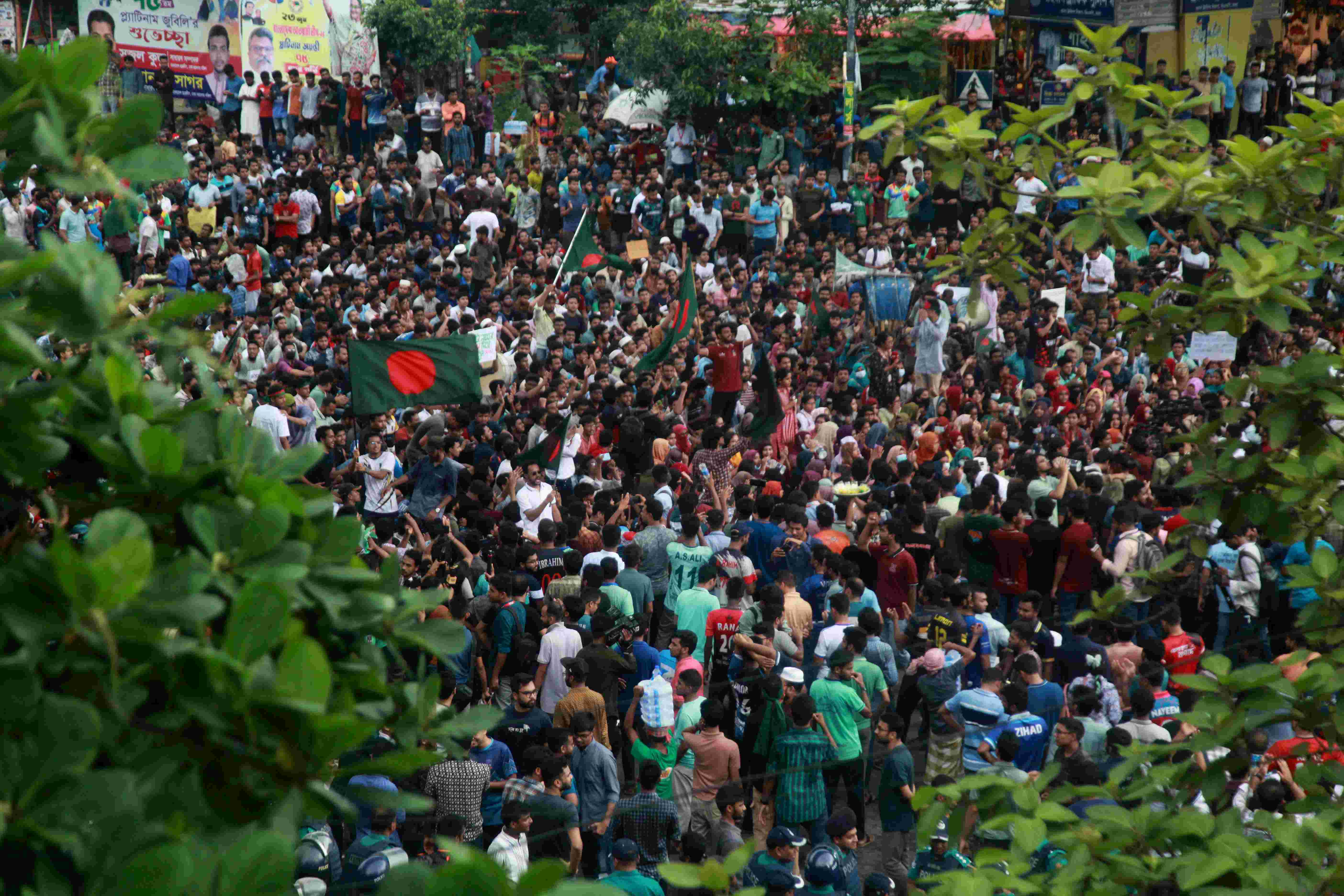
They announced their intention to resume demonstrations outside the library at 11 am on Thursday. The blockade resulted in significant traffic congestion in the Shahbagh area, causing inconvenience for commuters.
Nahid Islam, representing the “Anti-discrimination Student Movement,” highlighted the widespread participation in the protests, emphasizing that the issue extended beyond student and job seeker concerns and was a matter of national importance.
He reiterated their demand for merit-based recruitment and the reinstatement of the 2018 circular, vowing to continue protests until their demands were met.
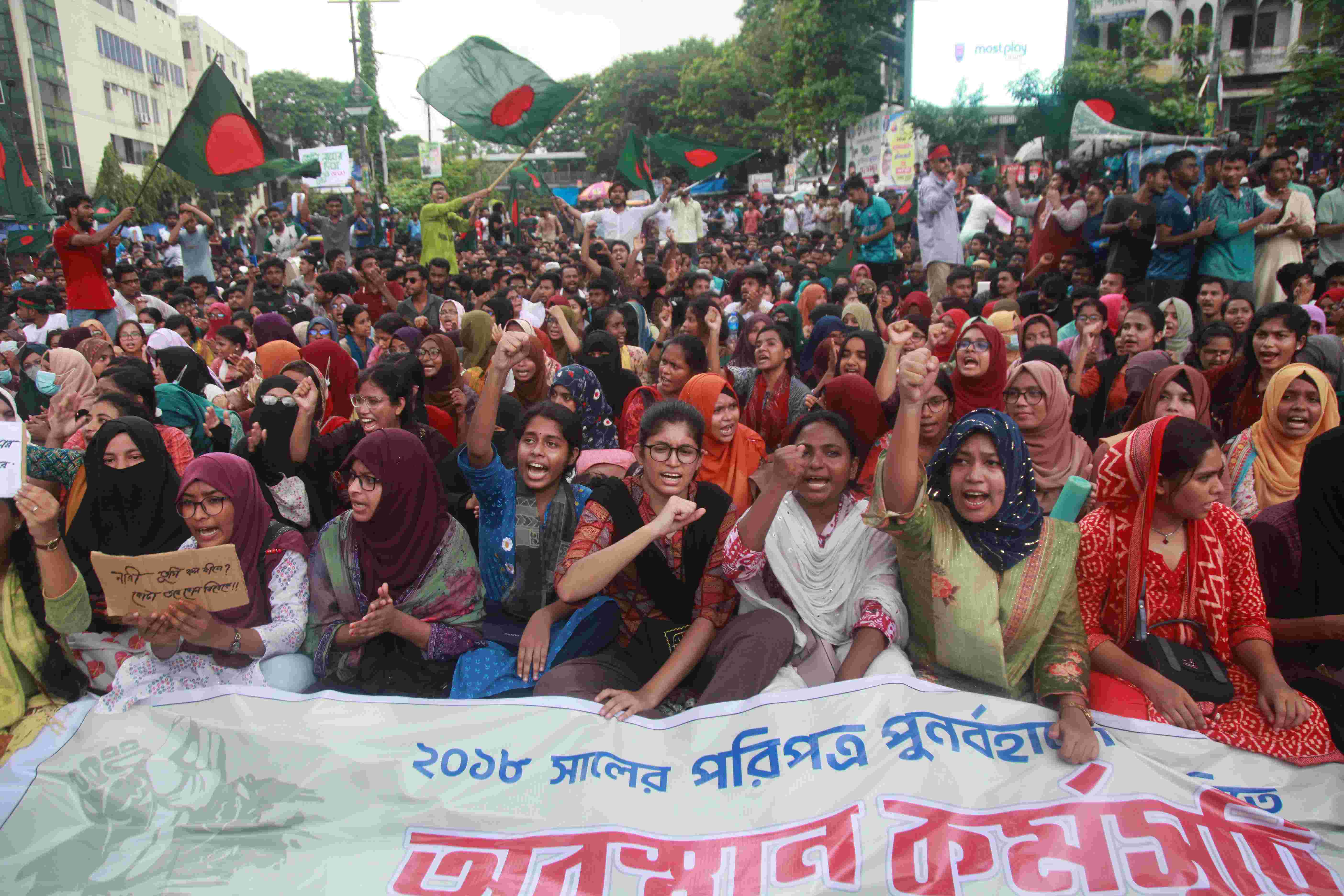
What are the students protesting?
The quota system for freedom fighters was established shortly after independence, even before the finalization of the Constitution, granting them a 30% reservation in various government and related institutions.
This quota was later constitutionally legitimized under Article 150 and extended to include the children of freedom fighters.
In response to student protests on October 4, 2018, the government issued a circular that removed quotas for women, freedom fighters, and certain districts in government job recruitment.
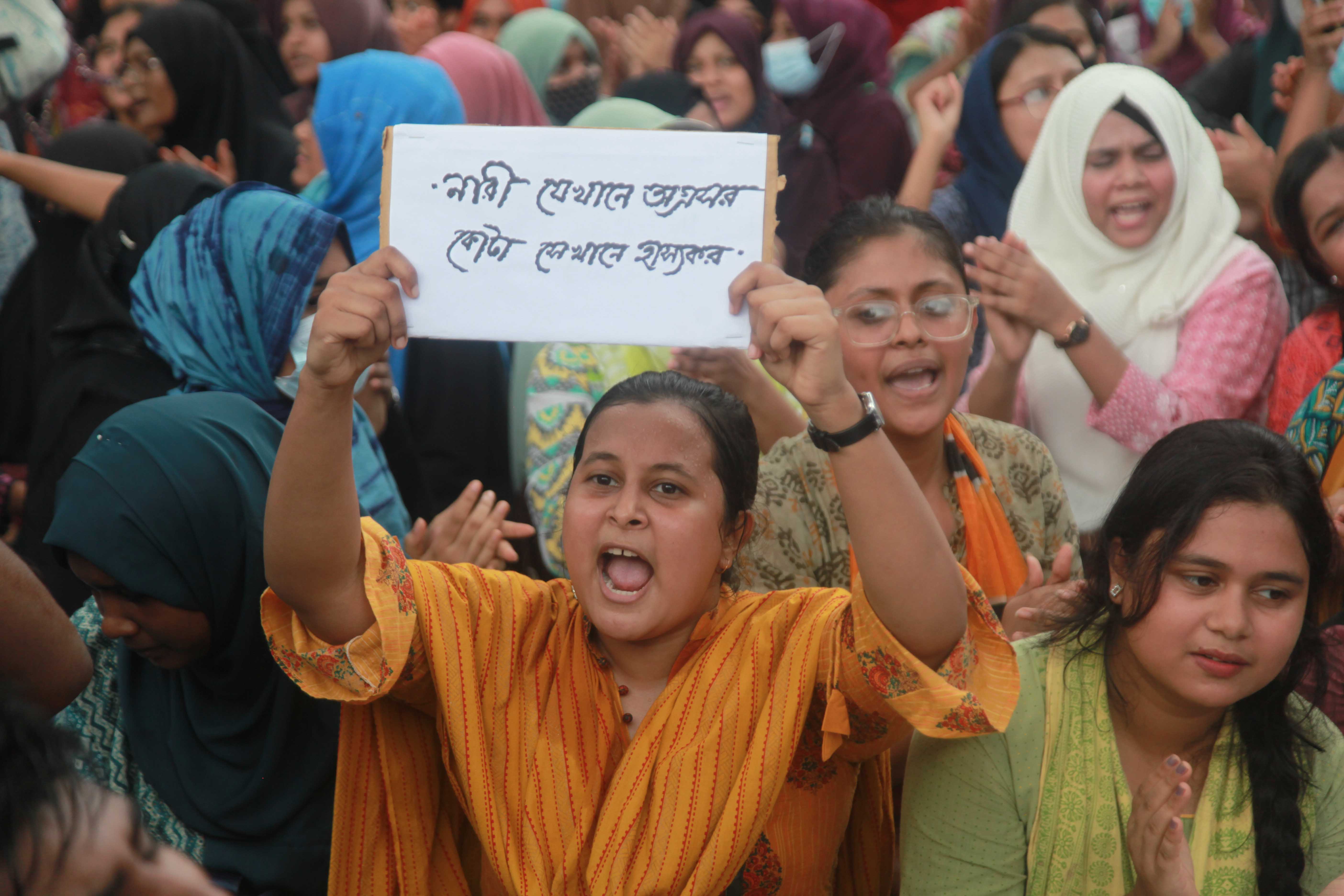
This merit-based system applied to higher-level positions (ninth to thirteenth grade), while quotas for lower-level positions (third and fourth class) remained in effect.
In 2021, a group of seven individuals, including Wahidul Islam, the son of a freedom fighter, challenged the circular abolishing quotas in the High Court.
The court ruled against the cancellation of quotas, deeming it illegal. In response, the state appealed to the Appellate Division to suspend the decision.
The High Court's ruling sparked student protests across the country, including at Dhaka University, Jahangirnagar University, and Rajshahi University. A similar protest had also occurred at the Shahbagh intersection the day before.
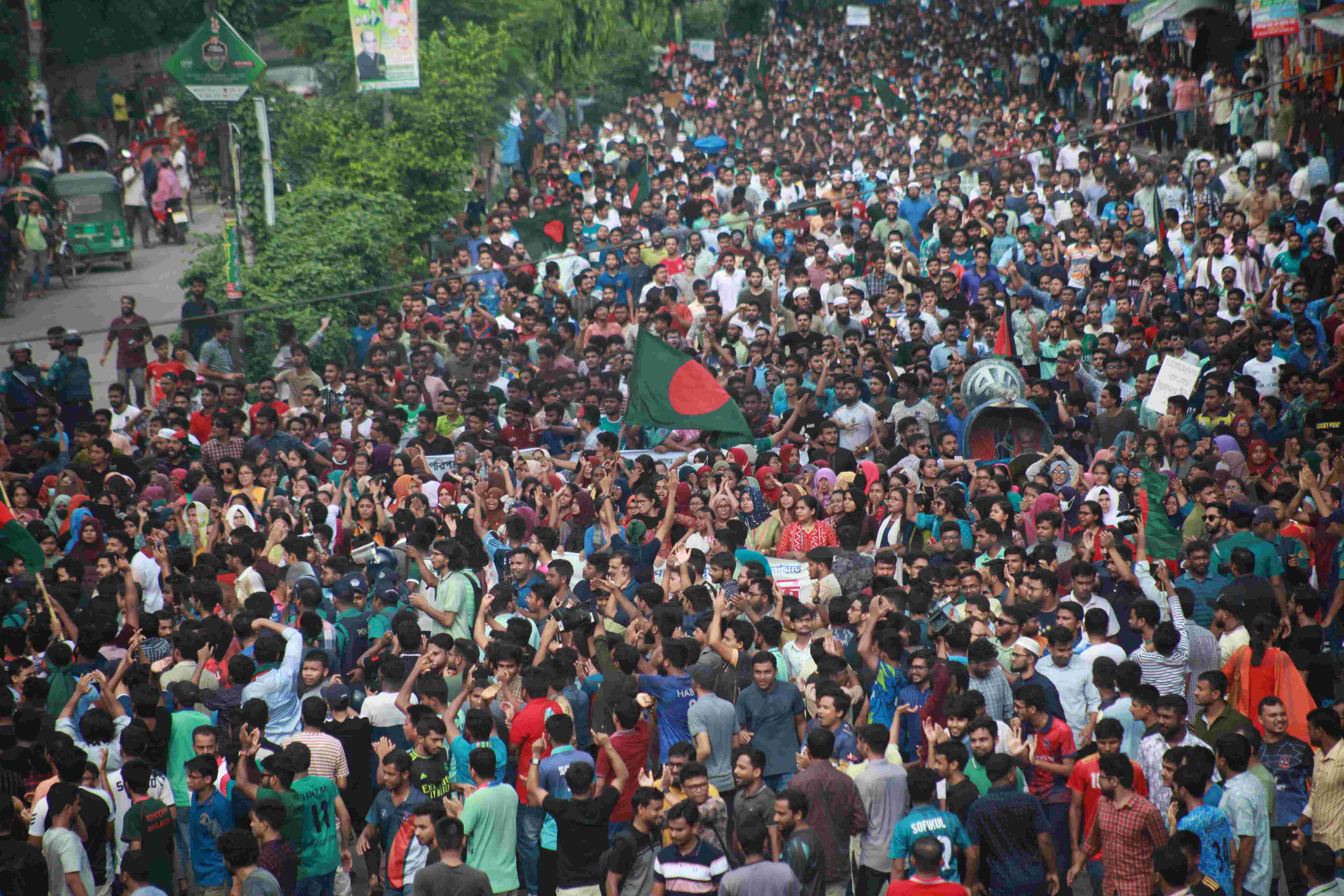
What do the protestors demand?
Protest leader Nahid stated that demonstrations had been ongoing since the High Court's verdict on June 5.
The protesters' ultimatum had been ignored by the government, prompting them to resume demonstrations, according to Nahid.
He expressed hope that the Appellate Division would rule in their favor during Thursday's hearing and affirmed their commitment to continue protesting until at least their primary demand was met.
Sharjis Islam, another protest leader, outlined their four demands: Reinstating the 2018 circular that mandates merit-based recruitment for first and second-class government positions and forming a commission to determine a reasonable quota for disadvantaged groups.
They also demanded restricting quota utilization to a one-time opportunity for eligible individuals and Implementing merit-based recruitment to fill vacancies left by officials initially appointed through quotas.
—

